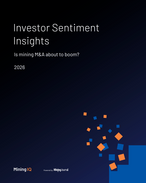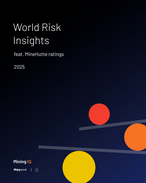This article is 5 years old. Images might not display.
The company said the Higher Administrative Court had ruled in its favour, against the initial decision by the Ministry of Economy to terminate the permit.
"The Higher Administrative Court's ruling creates a new legal situation, as it is final and cannot be appealed by the government again," Euromax said.
It said the ruling boded well for the company's second court case, where it's contesting the final decree to terminate the Ilovica 6 permit in December 2019, saying the decision created a strong legal precedent in the company's favour.
"It further confirms that the government has an obligation to consider first the merger of the Ilovica 6 and Ilovica 11 concessions, both of which are integral to the overall project," Euromax said.
It had requested merging the concessions in January 2016.
"We look forward to working together with the government to get the permitting process back on track and deliver the project's enormous economic benefits," executive chairman Tim Morgan-Wynne said.
Morgan-Wynne, previously the non-executive chairman, was appointed to the role as part of board changes in August following long-serving CEO and president Varshan Gokool's resignation.
Euromax said last month it was hoping to get Ilovica-Shtuka into production within two years once permitting and construction funding had been arranged.
It said its fast-track development plan could see 600 jobs created for local people and local investment of €14 million (US$17 million) in the next 12 months.
A 2016 feasibility study for Ilovica had outlined initial capex of US$474.3 million, an after-tax NPV5 of $440.1 million and IRR of 17.8%, for a project producing an average annual 83,000 ounces of gold and 16,000 tonnes of copper over a 20-year mine life.
All-in costs were put at $372/oz, using a $1,220/oz gold price and $2.90/lb copper price.
Euromax had reported an after-tax loss attributable to shareholders of C$1.2 million for the September quarter.
Its shares (TSX: EOX) closed up 166.7% yesterday to C8c, a one-year high, capitalising it at $26.6 million.


























